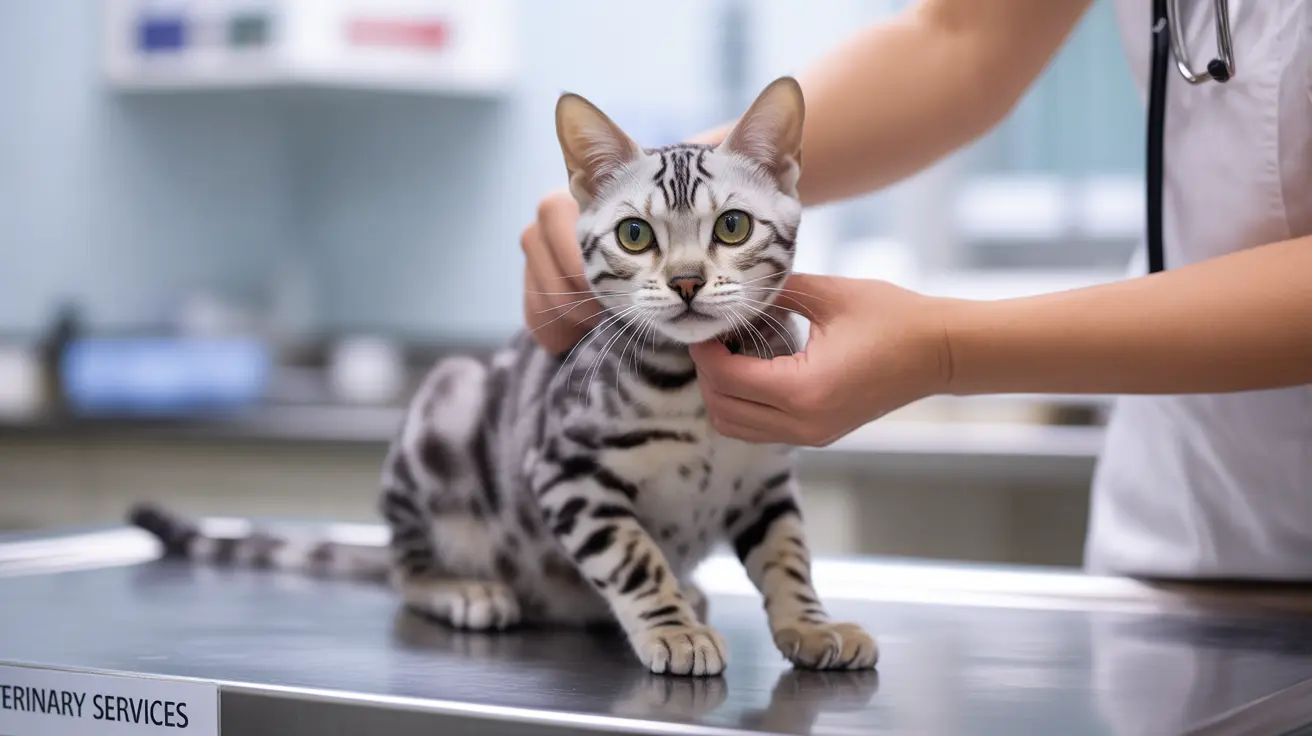When a cat's immune system turns against its own body, the result is an autoimmune disease - a complex condition that can affect multiple organs and systems. While relatively rare in cats, these disorders require careful attention and long-term management to ensure our feline companions maintain a good quality of life.
In this comprehensive guide, we'll explore the various types of autoimmune diseases that can affect cats, their symptoms, and the current treatment options available. Whether you're a concerned pet parent or seeking to better understand these conditions, this article will provide you with essential information about managing autoimmune disorders in cats.
Types of Feline Autoimmune Diseases
The most common autoimmune conditions in cats include Systemic Lupus Erythematosus (SLE), Discoid Lupus Erythematosus (DLE), and various immune-mediated skin diseases. SLE is particularly challenging as it can affect multiple organ systems simultaneously, while DLE primarily impacts the skin.
Each type of autoimmune disease presents unique challenges and requires specific treatment approaches. Understanding these distinctions is crucial for proper diagnosis and management.
Recognizing the Signs and Symptoms
Autoimmune diseases in cats can manifest through various symptoms, including:
- Lethargy and decreased appetite
- Persistent fever unresponsive to antibiotics
- Joint pain and swelling
- Skin lesions and hair loss
- Ulcers around the face and nose
- Anemia and low platelet counts
Early recognition of these symptoms is crucial for timely intervention and better treatment outcomes.
Diagnosis and Assessment
Diagnosing autoimmune diseases in cats requires a comprehensive approach, including:
- Complete blood count and chemical profiles
- Antinuclear antibody testing
- Skin biopsies when appropriate
- Urinalysis and kidney function tests
- Thorough physical examination and medical history review
Treatment Strategies and Management
While there's no cure for autoimmune diseases in cats, several treatment options can help manage symptoms and improve quality of life:
- Immunosuppressive medications
- Corticosteroids for inflammation control
- Specialized diets when organ systems are affected
- Regular veterinary monitoring and medication adjustments
- Environmental modifications to reduce triggers
Living with an Autoimmune Disease: Long-term Care
Managing a cat with an autoimmune disease requires dedication and attention to detail. Key aspects of long-term care include:
- Regular veterinary check-ups
- Careful monitoring of symptoms and side effects
- Maintaining a stress-free environment
- Protected exposure to sunlight
- Balanced nutrition and appropriate exercise
Prevention and Risk Factors
While autoimmune diseases cannot always be prevented, understanding risk factors can help with early intervention:
- Genetic predisposition
- Environmental triggers
- Age-related factors
- Previous infections or medications
- Stress levels and overall health status
Frequently Asked Questions
What are the common symptoms of autoimmune diseases in cats, and how are they diagnosed?
Common symptoms include fever, joint pain, skin lesions, and lethargy. Diagnosis involves blood tests, including antinuclear antibody testing, complete blood counts, and sometimes skin biopsies. Your veterinarian will also conduct a thorough physical examination and review your cat's medical history.
How do I manage and treat autoimmune diseases like lupus in my cat at home?
Home management includes maintaining a stress-free environment, administering prescribed medications consistently, protecting your cat from excessive sun exposure, and monitoring for any changes in symptoms. Regular veterinary check-ups are essential for adjusting treatment plans as needed.
What are the potential side effects of immunosuppressive medications used to treat autoimmune diseases in cats?
Common side effects can include increased thirst and urination, increased appetite, weight gain, and susceptibility to infections. Long-term use of corticosteroids may also affect organ function, requiring regular monitoring by your veterinarian.
Can autoimmune diseases in cats be prevented, and are there any genetic factors involved?
While autoimmune diseases cannot be completely prevented, there is evidence of genetic predisposition. Affected cats should not be bred, and maintaining overall health can help reduce the risk of triggering these conditions.
What is the typical prognosis for cats with autoimmune diseases, and what long-term care is required?
The prognosis varies depending on the specific condition and severity. Many cats can live quality lives with proper management, though lifelong care is typically necessary. Regular veterinary visits, medication compliance, and careful monitoring are essential components of long-term care.






